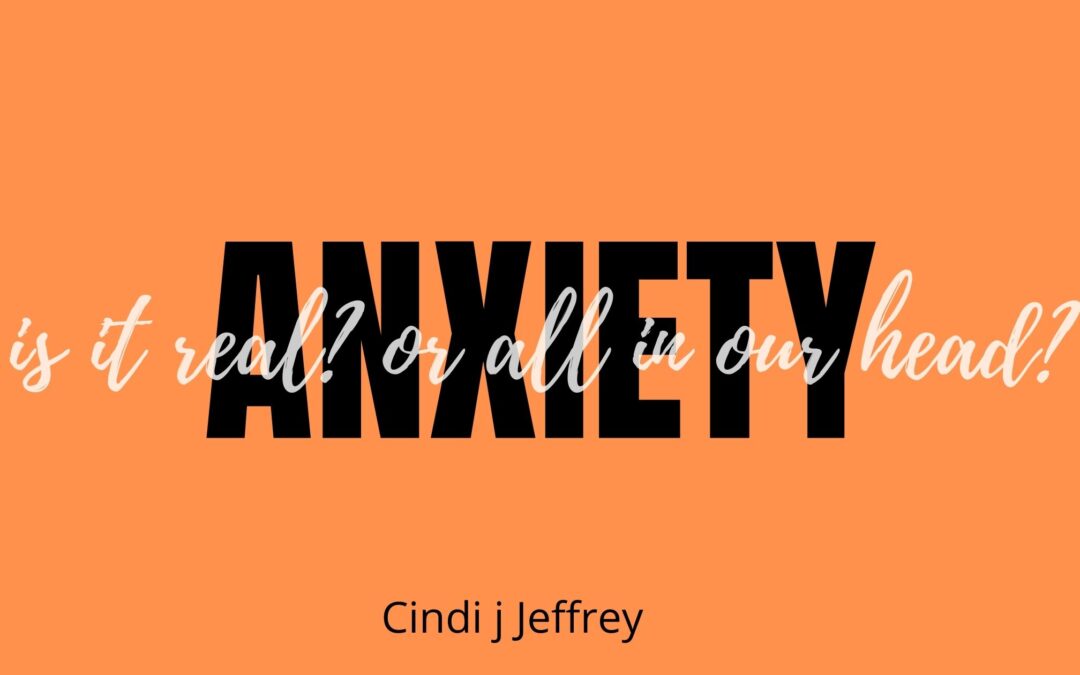
by Cindi j Jeffrey | Jan 9, 2021 | childhood, Depression, Fear, mental health, parenting, Relationships, school, self-care, Uncategorized, Wellness
Anxiety
Ugggg…what a fuckin nightmare. It is different for everyone, yet no one really understands what it is or where it comes from.
I have experienced anxiety since I was a little kid, however, I didn’t understand that was the underlying condition. 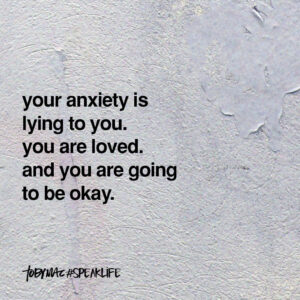 I could (and still can) rationalize it away. Like most kids, I would be afraid of what was under my bed, or what could be lurking in my closet. However, I took it a step further and began to unplug every electronic device in my room, so a fire would not emerge. Futhermore, I would be afraid when my brother ate alone, because I didn’t want him to choke. Additionally, there were days I went without eating because I was sure I had a lump in my throat. It took the doctor telling me I was fine before I ate some real food (therapist friends, analyze that one, I have).
I could (and still can) rationalize it away. Like most kids, I would be afraid of what was under my bed, or what could be lurking in my closet. However, I took it a step further and began to unplug every electronic device in my room, so a fire would not emerge. Futhermore, I would be afraid when my brother ate alone, because I didn’t want him to choke. Additionally, there were days I went without eating because I was sure I had a lump in my throat. It took the doctor telling me I was fine before I ate some real food (therapist friends, analyze that one, I have).
What you see is not what is happening
Perhaps the biggest and most creative thing I pulled off was the following: One day I was playing in our attic, (which also kind of became a toy room, as it was a small room off directly off of my bedroom)…I discovered we had rat poison in there and I freaked out. From that point on, I would not touch anything from the attic as I associated it with that poison and was terrified I would become poisoned. I associated the rat poison with harm to my own person.
Eventually, this manifested into me my touching my food and I even made a game at the school lunch table…I wanted to see who could eat without touching their food. I can’t remember how long this went on, but even as an adult, I can remember how strong those feelings were and how I was sure something bad would happen if I couldn’t control my surroundings. Side-note: I am pretty sure I never stepped foot in in that attic again.
Control
Often, anxiety stems from a lack of control of your world. It’s no secret that life is chaotic and as a child who needed structure, I began to internalize my anxiety, often leading to racing thoughts and dysfunctional though patterns. I would begin to doubt my worthiness, or I would begin to exhibit Obsessive Compulsive Disorder behaviors. I wondered why God didn’t love me enough to protect me from the things that were happening around me.
As I grew into a teenager, those OCD behaviors manifested. I would draw crosses on my homework, or I would feel the need to avoid certain foods, drinks, or places for fear of something bad happening to me. Little did I understand that I was creating my own little world of negative thinking and fearfulness.
I was typically home alone from the time I got home from school (when I attended) to when I went to bed, leading me to be terrified of something happening. To ensure I would know if anyone ever entered my home and to feed into my OCD, I would place all of our throw rugs a certain way. If they had been moved, I would know someone had entered my home. I remember one day I arrived home from work and saw the first rug scattered by the front door…as I walked trepidisciously through the large, two story home, each rug was moved…I was so fricken terrified that I ran out the front door, only to discover, my best friends parked down the street laughing at me.
Understanding Anxiety
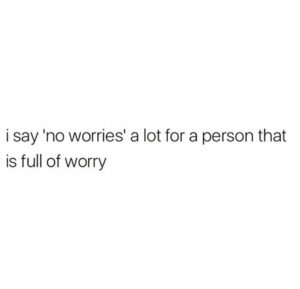 I knew my brain was wired differently, I just didn’t know how to handle it. I did the best I could to control those thoughts, but it was exhausting. This once A student and pretty good athlete began to fail classes and lose interest in sports. I began to self medicate with alcohol as it would numb my senses. I slept more. The cycle began and contrary to my own interference, the guilt, self loathing and anxiety continued to increase.
I knew my brain was wired differently, I just didn’t know how to handle it. I did the best I could to control those thoughts, but it was exhausting. This once A student and pretty good athlete began to fail classes and lose interest in sports. I began to self medicate with alcohol as it would numb my senses. I slept more. The cycle began and contrary to my own interference, the guilt, self loathing and anxiety continued to increase.
Looking back, the adult me wants to hug the child me so tightly that little me understands she is not alone. This was during a time period when my parents were either working or not home and my brother was trying to figure out his next chapter. I was the lost child. The one that drifted just under the radar and did enough positive things to walk the line. I needed help, but even I couldn’t recognize that, nor could I ask for it. And when I did, or when it was offered, I was not the easiest patient to work with.
Anxiety looks different in everyone
The grown up me looks back and recognizes my delinquent behavior for what it was…anxiety and depression. I was begging for attention, regardless of positive or negative. My interactions with adults were minimal, as my dad worked nights and I didn’t live with my mom. My teachers saw very little of me, as I only attended school sporadically. When I was there, I was apathetic and/or disrespectful.
There is a saying “All it takes is one person to believe in a child for them to be successful.” Fortunately for me, I had a teacher and an associate principal who both saw past my emotional walls and believed in me. I pushed them away and I definitely tried to maintain my boundaries, but they prevailed, and because of them, I did graduate from high school.
Adult versus child perceptions
Conversely, the other thing the grown up in me can see is that my parents were doing the best they could do. Divorce is devastating for all involved, no matter what steps brought a family to separate (I could write another piece on this). We can question the why’s and the why nots, but at the end of the day, we can’t change anything. It’s really fuckin hard to parent when you are struggling to take care of yourself, trust me, I know this for a fact.
Grant yourself GRACE, my friend. I am.

just call me, anxiety girl
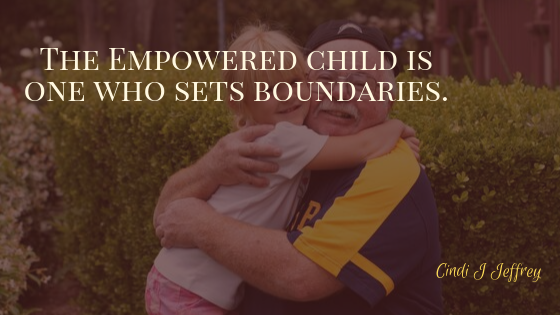
by Cindi j Jeffrey | Sep 30, 2019 | childhood, Fear, mom, Momfail, parenting, Relationships, school, self-care
Empowered educator
As an empowered educator, I communicate directly with kids via classroom settings. Furthermore, our topics of conversation can be difficult to process. My experience has taught me that children react differently to the tough topics that hit them close to home. Because of this, I am always alert to the signals from my audience. Incidentally, a few weeks ago, as we talked about “consent” a young man responded with something that still makes my stomach flutter.
To set the stage, as I present, I often share stories from my own experience to provide context. On this particular day, we were discussing how our parents often instruct us to hug other adults, even if we don’t want to. When I asked the students what this experience teaches us, this kiddo responded “we need to do what adults tell us”.
Whoah.
Mind blown
As a result, I stopped in my tracks. I was mind blown. First of all, not because he said anything wrong, on the contrary as I looked at the larger picture, I mentally asked myself if we (as adults) help our children create their own boundaries or create uncomfortable situations for them. Even more so, the look in his eyes was haunting and the social worker in me wondered what had triggered fear for him at this particular moment that he was remembering.
Likewise,I know that as a child there were certain adults I felt comfortable with and others who I didn’t. Even at a young age, I could recognize who I was not comfortable with…even if my parent’s didn’t.
What if we empowered
Conversely, as I procrastinated by scrolling through FACEBOOK, I watched a video of a teacher welcoming her children to class. Ultimately, she provided the children with a choice of options on how they wished to be greeted. What an empowering way to begin the school day! These students were given choices based upon how they were feeling at that very moment. Above all, these children were empowered.
What if we allow our children to choose how they want to greet others. This doesn’t allow them to be disrespectful, in contrast, it empowers them to make their own choices. Above all, let us teach them to create boundaries and empower them to redirect others when their boundaries are violated.
Authors Note: For more information on ways to keep your child safe, please visit The Set Me Free Project.
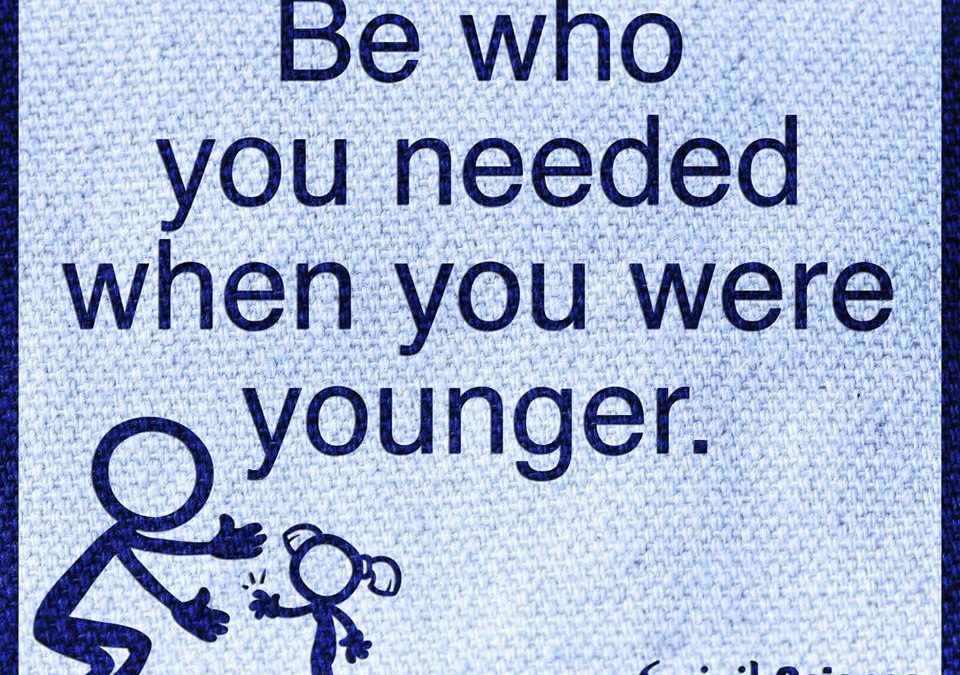
by Cindi j Jeffrey | Jan 27, 2016 | mom, school, work from home mom
We are defined by the words we associate with ourselves. I am a mommy. I melt when my boys say my name, even when it is the 400th time that day. I don’t take this position lightly. Allow me to address a situation that occurred in our life.
Earlier this week, my sensitive child came home from school thinking he was a “bad” boy. To say I was appalled is an understatement. Some of his classmates had been having difficulty and acting out and he was put into what he perceived to be the “bad” group.
He was visibly upset, as this is the child who follows the rules. He is kind to everyone, particularly those who don’t have many friends. He tries to maintain the status quo and doesn’t do a lot to stand out. He often fails to do his own work when a classmate asks him for help. I will not say that he hasn’t broken the rules, as he has. He has made some poor decisions, as we all have.
So for him to share that he was a “bad” boy was unacceptable. It is so easy to put someone down yet so hard to build them back up. His dad and I spent quite a bit of time talking with him about our expectations for him. I wish I could say this was the first time this has happened, but it isn’t. In the past we have had to talk with him about how he perceives the actions of others in regard to the reality of those actions.
For a sensitive child, overlooking positive behavior is detrimental. Even if he performs well, he relies on the feedback of others to feel better. A sensitive child does not have the internal drive that guides him do complete his work, or stay in his seat…he will always follow his inclination to help a classmate who needs assistance or to worry about everyone else.
It crushes my child if you forget to greet him in the morning. We work very hard on the way to school to prepare for the day and when he leaves the car to walk into the school, the direction of his day can often be determined by how high he holds his head.
He isn’t consistent in his work. Plese don’t ever confuse that with his level of intelligence. He doesn’t forget ANYTHING. His capacity for work is contingent upon how he feels about himself, OR how he feels about you, as his teacher. If there isn’t a connection, he will probably not perform at his highest. It takes him time to trust you and that trust is earned in regard to your interactions with him and with others.
He is a watcher. He notices who is in trouble and who does well. He notices that he has never been picked as student of the week. He tries to please you, and when you fail to acknowledge that, he will stop trying. As he begins to fall behind, he feels overwhelmed and eventually will stop trying.
He is 7. He needs to play. He needs a break from being “busy”. He needs to run and be silly. While he may not be as athletic as other boys, he loves to be around everyone. He is learning that he can’t throw a ball as good as someone else, but that doesn’t mean he doesn’t want to.
There are things he excels at. Please take the time to ask him what he likes. It may take 2 minutes from your day, but I promise you, it will mean the world to him. Ask him how he feels and you will learn more about him that you ever knew. Don’t categorize him or any other child, for you only see the tip of who they are.
It hurts me to watch him walk into school when he feels like a “bad” boy. He is a little boy and he is still learning. I know that you have many students to watch over and you have an integral job of guiding who they will become. I understand that your day is chaotic and your job is sometimes thankless. Please take a moment and acknowledge my child as a person, as a little boy who wants to please you, as a little boy who is learning. We are trusting you to guide our child, please don’t take that lightly.

 I could (and still can) rationalize it away. Like most kids, I would be afraid of what was under my bed, or what could be lurking in my closet. However, I took it a step further and began to unplug every electronic device in my room, so a fire would not emerge. Futhermore, I would be afraid when my brother ate alone, because I didn’t want him to choke. Additionally, there were days I went without eating because I was sure I had a lump in my throat. It took the doctor telling me I was fine before I ate some real food (therapist friends, analyze that one, I have).
I could (and still can) rationalize it away. Like most kids, I would be afraid of what was under my bed, or what could be lurking in my closet. However, I took it a step further and began to unplug every electronic device in my room, so a fire would not emerge. Futhermore, I would be afraid when my brother ate alone, because I didn’t want him to choke. Additionally, there were days I went without eating because I was sure I had a lump in my throat. It took the doctor telling me I was fine before I ate some real food (therapist friends, analyze that one, I have). I knew my brain was wired differently, I just didn’t know how to handle it. I did the best I could to control those thoughts, but it was exhausting. This once A student and pretty good athlete began to fail classes and lose interest in sports. I began to self medicate with alcohol as it would numb my senses. I slept more. The cycle began and contrary to my own interference, the guilt, self loathing and anxiety continued to increase.
I knew my brain was wired differently, I just didn’t know how to handle it. I did the best I could to control those thoughts, but it was exhausting. This once A student and pretty good athlete began to fail classes and lose interest in sports. I began to self medicate with alcohol as it would numb my senses. I slept more. The cycle began and contrary to my own interference, the guilt, self loathing and anxiety continued to increase.


